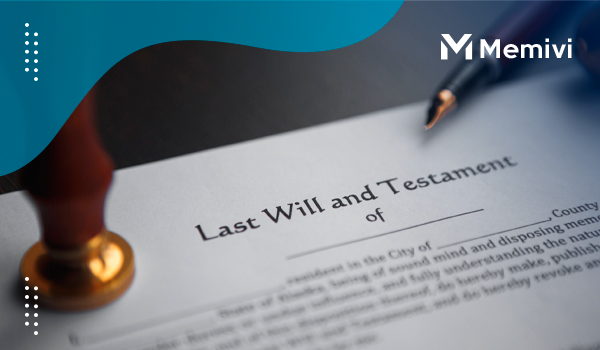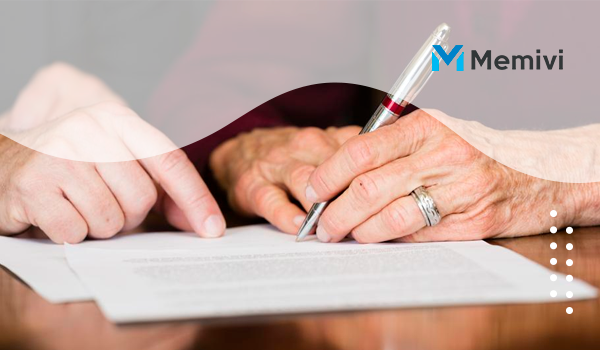
Many people are not aware of what a pour-over will is or how it can benefit them.In short, a pour-over will is a legal document that allows you to ensure that any assets you have that are not included in your trust are “poured over” into the trust after your death.
This can help streamline the probate process and ensure that your assets are distributed according to your wishes. In this post, we will explore the basics of pour-over wills, why you may need one, and how to create one.
By the end of this article, you will have a better understanding of whether a pour-over will is right for you and your estate planning needs.
Explaining the concept of a pour over will
A pour over will is an important legal document that works in conjunction with a trust. To understand the concept of a pour over will, it is crucial to first have a basic understanding of what a trust is.
A trust is a legal arrangement where a person, known as the grantor, transfers their assets into a separate legal entity, known as a trust. The trust is managed by a trustee who is responsible for administering the assets according to the terms specified in the trust document. The beneficiaries, who can be individuals or organizations, receive the benefits of the trust.
Now, let’s dive into the concept of a pour over will.
Essentially, a pour over will acts as a safety net to ensure that any assets the grantor failed to transfer into the trust during their lifetime are “poured over” into the trust upon their death. In other words, any assets that were not initially included in the trust will be transferred to the trust through the pour over will.
Why is a pour over will necessary?
Well, even with careful planning, it is possible for assets to be unintentionally left out of the trust. This can happen due to oversight or simply acquiring new assets after the creation of the trust.
Without a pour over will, these assets may be subject to the probate process, which can be time-consuming, expensive, and may not align with the grantor’s intentions. By having a pour over will in place, the grantor can ensure that any remaining assets are seamlessly transferred into the trust, thus avoiding probate. This provides peace of mind knowing that the grantor’s wishes will be carried out, and their assets will be distributed according to the terms of the trust.
How a pour over will differs from a traditional will?
When it comes to estate planning, many people are familiar with the concept of a traditional will. However, a pour over will is a lesser-known but equally important tool to consider. So, what exactly is a pour over will and how does it differ from a traditional will? A pour over will is a legal document that works in conjunction with a trust.
Unlike a traditional will, which distributes assets directly to beneficiaries upon the testator’s death, a pour over will “pours over” any remaining assets into a trust.
Essentially, it acts as a safety net to ensure that any property or assets not already included in the trust are transferred into it.
One of the key differences between a pour over will and a traditional will is the level of control and flexibility they provide. With a traditional will, assets can be distributed directly to beneficiaries, leaving little room for changes or adjustments later on. On the other hand, a pour over will allows for greater flexibility because it funnels assets into a trust that can be modified or updated as circumstances change.
Additionally, a pour over will can help streamline the probate process. By transferring assets into a trust, they become part of the trust estate, which is typically not subject to probate. This can save time, money, and potentially avoid the public nature of probate proceedings.
What assets can be transferred through a pour over will?
A pour over will is an essential legal document that works in conjunction with a trust to ensure that all of your assets are properly transferred upon your death. It acts as a safety net, catching any assets that may not have been transferred directly into the trust during your lifetime.
So, what assets can be transferred through a pour over will? The answer is simple: any assets that you own individually and have not designated to be transferred to the trust. This can include real estate properties, bank accounts, investment portfolios, personal belongings, and any other valuable assets that are solely in your name.
By including a pour over provision in your will, you can rest assured that any assets not explicitly transferred to the trust will be “poured over” into it upon your death. This means that those assets will be subject to the terms and conditions outlined in the trust document, ensuring that your wishes regarding their distribution are carried out.
The role of a pour over will in avoiding probate

A pour over will plays a crucial role in avoiding probate, making it an essential tool for estate planning. But what exactly does it do and why is it necessary?
Let’s delve into the basics. Probate, the legal process of administering a deceased person’s estate, can be time-consuming, expensive, and subject to public scrutiny. It involves validating the will, settling debts, distributing assets, and resolving any disputes that may arise. However, with a pour over will in place, you can navigate this complex process more smoothly.
Essentially, a pour over will acts as a safety net for any assets that were not transferred to a living trust during the grantor’s lifetime. It allows these remaining assets to “pour over” into the trust upon their passing, ensuring they are included in the trust’s distribution plan. This means that the assets will not have to go through probate, as they are already part of the trust.
By utilizing a pour over will, you can ensure that any assets you may have forgotten to transfer to your trust or any newly acquired assets will still be protected and distributed according to your wishes. It serves as a catch-all mechanism, providing peace of mind that your entire estate plan remains intact and probate can be avoided to the greatest extent possible.
The process of creating a pour over will
Creating a pour over will involves a specific process that ensures your assets are protected and distributed according to your wishes. This legal document is designed to work in conjunction with a revocable living trust, providing a safety net for any assets that may not have been transferred into the trust. The process begins by establishing a revocable living trust, which serves as the main document for managing and distributing your assets.
Within this trust, you can outline detailed instructions on how you want your property, finances, and other assets to be handled after your passing.
However, it is not uncommon for individuals to acquire new assets or forget to transfer certain assets into their trust. This is where the pour over will comes into play. It acts as a catch-all mechanism, allowing any remaining assets not explicitly mentioned in the trust to “pour over” into it upon your death.
To create a pour over will, you will need to consult with an attorney specializing in estate planning. They will guide you through the process, ensuring that your pour over will is drafted correctly and aligns with your overall estate plan. It is crucial to be thorough and provide clear instructions in your pour over will to avoid any ambiguity or confusion.
Conclusion
It can be overwhelming to navigate through the complexities of estate planning, but a pour over will can serve as a crucial component to ensure your assets are properly distributed and your wishes are upheld. By incorporating this legal document into your estate planning strategy, you can have peace of mind knowing that your loved ones will be taken care of and your assets will be transferred smoothly. Remember, it’s never too early to start planning for the future, so take the necessary steps to protect your legacy today.


 Best Allowance and Chore App for Kids <p class='sec-title' style='line-height: normal; font-weight: normal;font-size: 16px !important; text-align: left;margin-top: 8px;margin-bottom: 0px !important;'> As parents, we all know how challenging it can be to teach our children the value of money and how to manage it effectively. </p>
Best Allowance and Chore App for Kids <p class='sec-title' style='line-height: normal; font-weight: normal;font-size: 16px !important; text-align: left;margin-top: 8px;margin-bottom: 0px !important;'> As parents, we all know how challenging it can be to teach our children the value of money and how to manage it effectively. </p>  Victory for Consumers as All Three Credit Bureaus Now Offer Weekly Free Report Access <p class='sec-title' style='line-height: normal; font-weight: normal;font-size: 16px !important; text-align: left;margin-top: 8px;margin-bottom: 0px !important;'> In a victory for consumers everywhere, all three credit bureaus have announced that they will now offer free weekly credit reports. </p>
Victory for Consumers as All Three Credit Bureaus Now Offer Weekly Free Report Access <p class='sec-title' style='line-height: normal; font-weight: normal;font-size: 16px !important; text-align: left;margin-top: 8px;margin-bottom: 0px !important;'> In a victory for consumers everywhere, all three credit bureaus have announced that they will now offer free weekly credit reports. </p>  Revolutionizing Comfort: The Best HVAC Software of 2024 <p class='sec-title' style='line-height: normal; font-weight: normal;font-size: 16px !important; text-align: left;margin-top: 8px;margin-bottom: 0px !important;'> As technology advances, it's becoming increasingly more important to use software that can help streamline your business and keep you competitive. </p>
Revolutionizing Comfort: The Best HVAC Software of 2024 <p class='sec-title' style='line-height: normal; font-weight: normal;font-size: 16px !important; text-align: left;margin-top: 8px;margin-bottom: 0px !important;'> As technology advances, it's becoming increasingly more important to use software that can help streamline your business and keep you competitive. </p>